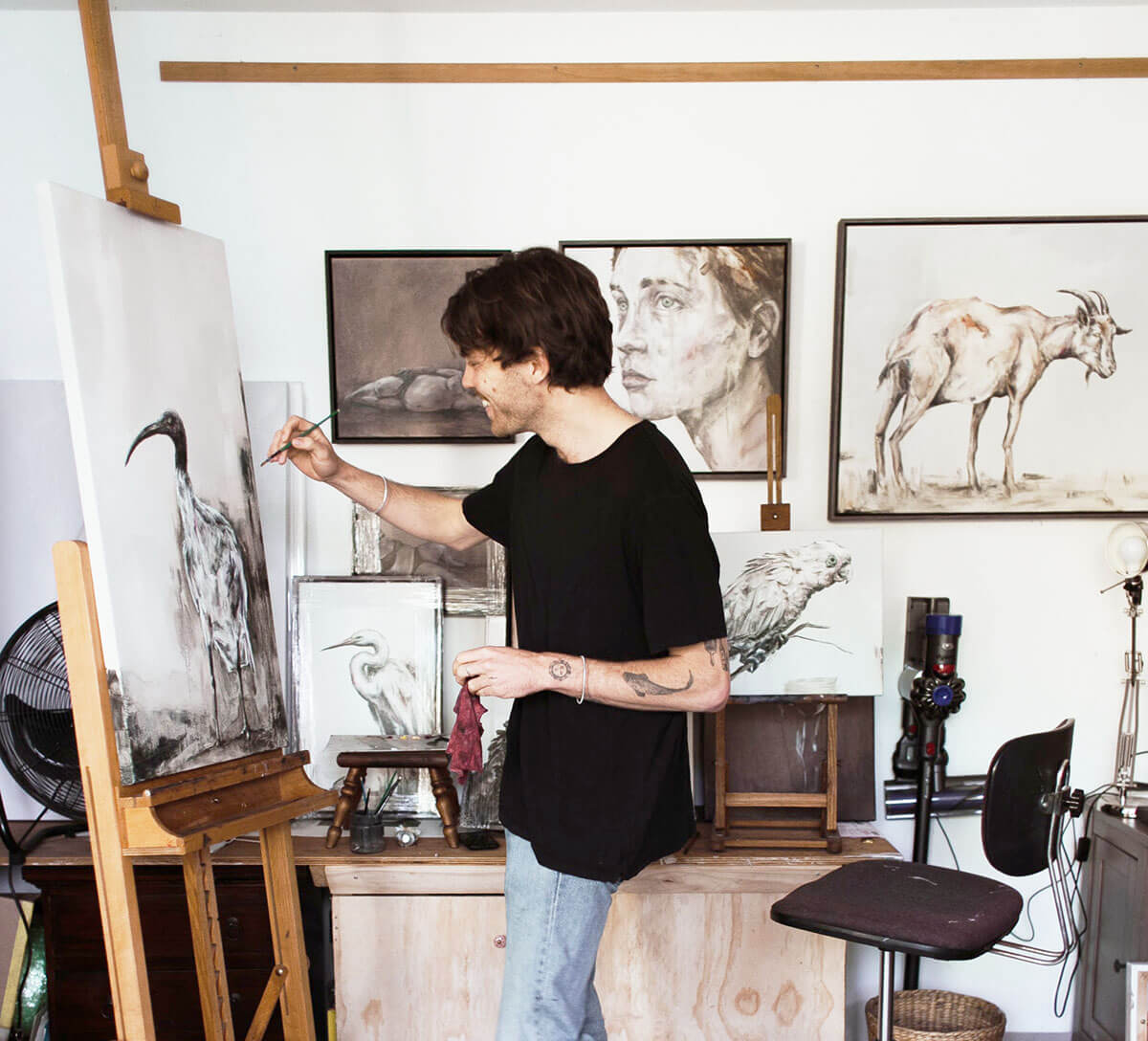
HotelPORT
Fred Bean is the founder and CEO of HotelPORT, a Florida-based hospitality distribution solutions company. Bean has spent over three decades in the travel industry, holding leadership positions at Travelweb and Cendant and founding his own consultancy, Rebel Travel Corporation, in 2006.
Founded in 2019, hospitality distribution solutions company HotelPORT provides tools to help hoteliers ensure accurate representation of property content across online channels.
HotelPORT offers a solution for hoteliers via its hospitality content monitoring and audit technology software, PropertyVIEW. Using artificial intelligence (AI) and machine learning, the tool monitors content across different channels, including online travel agencies, metasearch engines, destination marketing organizations and tour operators, among others.
In an interview with PhocusWire, Fred Bean, founder and CEO of HotelPORT, spoke on what drives him as a leader and how he sees the industry investing in and adopting new technology.
Editor’s note: The following responses have been edited and condensed for clarity and length.
What motivates you in your role as a CEO?
Well, I love what I do. I love hotel distribution. It’s something that I’ve grown up in over the last 30 years, from hotel CRSs [central reservation systems] to distribution from an online perspective and then, of course, working with the major hotel chains to solve that problem of distribution in the early 2000s is something that really stuck with me.
Where I saw opportunities to fix those challenges or gaps that exist within the industry, that’s kind of my sweet spot. What I like about it is—especially [as] somebody that doesn’t envision themselves as a salesperson—I fix problems, and this is one of those things where the problem never seems to go away, no matter how much technology is thrown out there or new platforms that come in, there’s always been that gap that existed that nobody was filling.
I saw that opportunity, and I’m still motivated because even with the changes in technology, with AI and other things that are coming in, we still haven’t got the basics right in the industry, and there’s a lot of opportunity for us to do some really great work and make the lives of our hotel partners easier, as well as our distribution partners. That’s the type of thing that keeps me motivated and keeps me doing this.
I think I’m a relatively old founder and CEO in the space, but it’s clear that we need somebody that’s got industry experience to do something like this in the way that we’re doing it. That’s why [HotelPORT] has also bootstrapped to this point, as opposed to just going out and trying to get funding, because the way that we need to do this for hotels requires focus and a longer-term, or longer-tail, process than just trying to hockey stick the revenue growth and then checkout.
What would you say your greatest challenge is currently as the CEO of HotelPORT?
The biggest challenge right now is scale. We are an enterprise-rate technology platform. The system is ready to put thousands of hotels in it, and it’s really just a matter of getting out in front of the hotels and letting them know that we exist.
Subscribe to our newsletter below
The other piece is how do we figure out the right pricing for the service, because we are saving our hoteliers a lot of cost, and we’ve tried to keep the price extremely low so that it can be more likely to build volume. There was like a 10-year period that I didn’t raise our fees at all and that is going from no technology to finally being able to invest and build that poprietary technology platform and continuing to evolve it from there.
How is HotelPORT using AI, and what have your experiences been like so far?
I’m a big fan of AI. The first question that I usually ask my team when we talk about AI deployments is, one, how do we kill it? Just in case we need to—because I like to trust but verify. But we’ve been leveraging AI and machine learning even before the large language models got really hot over the last couple of years.
From our perspective, [we’re leveraging] it to streamline the amenity mapping process that we have. For example, we’re mapping amenities from source content from the hotels, normalizing it across thousands of attributes and then mapping in that across the third-party channels as well, so we can actually score the accuracy of the information across the channels.
In addition to that, we’re also leveraging it from the standpoint of artificial vision to identify photos and whether or not they’re part of the approved assets that the hotel has versus something that may be outdated or pre-renovation or from the wrong hotel—which happens more often than hotels would probably even imagine.
As we go forward, what I’m really excited about with AI is the development of what I call content analytics, and what I mean by that is we have a lot of data where we can show a hotel, from a competitive perspective, how similar they are to other hotels in the market—but also from an attribute perspective, what attributes performed very well in the market.
For example, once we’re able to develop a neural network and [align] the revenue metrics with the content, we’ll get to a point where we can run reports and tell hotels how much revenue they’ve left on the table by not having an amenity flagged or, possibly, by not offering an amenity.
Some concerns that I have about AI [are] in the way that it’s already being used. There’s a certain very large review channel that I will not name, but they were using AI summaries, for example, summarizing information and content [and] didn’t know where all of that was coming from. But we noticed that as we were auditing our hotels, a large majority of those AI summaries were incorrect, but they didn’t have a way to fix the AI summaries.
I’m a big fan of AI. The first question that I usually ask my team when we talk about AI deployments is, one, how do we kill it? Just in case we need to—because I like to trust but verify.
Fred Bean, HotelPORT
I do think that, from a travel industry perspective—itinerary building, content creation, customer support—it’s going to be very significant. We’re making investments in those spaces so that we can be involved and know not only how to generate that content but also how to audit it and fix it in case something is incorrect.
How willing is the industry to adopt and invest in technology?
Like most things, the industry has to be sort of dragged along kicking and screaming, because as a hotelier, you have so many different things that you have to invest in to keep the lights on, generate a profit, pay your employees, things of that nature.
What I often find … in my career is that it really takes a disruptor that’s not tied into the legacy ecosystem to come in and make a change. We’ve seen that already with people that are doing 360s and things of that nature because it’s not a part of the original product set. We tried to do that with video, which hotels haven’t invested as much as they could [in], and with the advent of TikTok and some of these other things that’s making it a little bit easier—people are getting more involved in it—I think there’s still a long way to go.
But again, I think for hotels in general, the challenges are not technologies. What they need are more partners that are reliable, that have a vision and understanding and are willing to translate what their requirements are into reality—but also bring to the hotels what they may not know that they need from other industries and spaces.
It’s hard to get hotels to invest in photos, and that’s one of the number one things to help them sell, and it’s understandable why. So, I think there’s still a lot of work to do but a lot of opportunity and upside as well.
Having over 30 years in the travel industry, what do you know now that you wish you’d known when you started out?
Me, personally, I wish that I would have gone the entrepreneurial route sooner because there’s so many opportunities in this space to be creative and generate new, valuable ideas. I just feel that I started too late because it wasn’t something that I ever thought that I would do or wanted to do. I thought I was going to ride off into the sunset and be a consultant.
But there is still so much to do in the space, and if you care about the industry and care about the people that work within it, you want to be able to contribute in some form or fashion, and that’s why I participate in things like the HEDNA [Hotel Electronic Distribution Network Association] and AHLA [American Hotel and Lodging Association] and other things because we want to impart that expertise to the future generations. Unfortunately, on the hotel distribution side, it’s one of those things that seems to be dying. There are fewer and fewer people as we go along that have the expertise, that understand how the plumbing in the industry works, and I think that makes us weaker as an industry as we go forward.
I think aside from paying more attention to the Spanish class when I was in high school and college—because I didn’t think it was ever going to be necessary then, but clearly it is living in Miami and some of the places that I do business—and starting earlier, [it would be] paying more attention to some of the things on the financial side.
If you weren’t in the travel industry, what would you be doing?
The younger me would have answered that question much differently than the me today. Where I’m looking is more in the philanthropic space. For example, if somebody were to come to me today and say, “Hey, we want to buy HotelPORT for $50 million. We want you to go away,” I would go and focus on my foundation that I just launched last year [BIG Foundation].
The objective for that is to help food insecure children learn how to cook so that they can take care of themselves and their families but also so that they can have inroads into the hospitality industry, from either working with restaurants or going into hospitality education.
From a country perspective, although this is the same issue in Canada and other places, there’s so much money that’s generated in our industry and our space, and as I’ve been looking into this—in the hospitality industry, in particular—many of the kids that are food insecure in Miami-Dade County, where I live, their parents are hospitality employees. That itself leads to looking into: What are the other issues that the industry has that we should be trying to address?
The way that I’ve seen this is that rather than saying, “Here is some food, you guys go into that room and pick up the food,” which the kids aren’t going to do, if we have a fun and interesting program where they will learn something and take the food home with them at the end of the day and get a credential course and get involvement from hospitality leaders, chefs, things of that nature, we can create and replicate a program across the country where we’re educating and creating an enabled workforce that’s nourished as children [and shown] some career opportunities and aspirations that may not have been there before.
That’s also something I think that even AI is not going to be able to eliminate. It may reduce it because now there are burger-flipping machines and things [like that], but it is the one space, the food handlers who are preparing the food, where I think there’s always going to be that human component, and we also need a way to be able to feed ourselves, to feed our families. I think this is a great way to do it.
Where we can take whatever skills and talents that I have and help those that are in need to help lift them up and be contributing members to society—that, to me, is very exciting and something that I will plan to do, but that’s exactly what I would do if I wasn’t in the industry today.
More from our CEO Spotlight series…
PhocusWire talks to leaders across the digital travel landscape.








